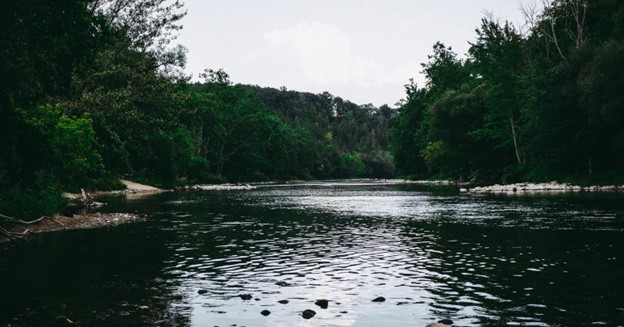
In our rapidly changing world, the challenges of climate change and ecological degradation seem overwhelming. As environmental crises escalate, it is easier to imagine the end of the world than the end of capitalism. This famous notion, attributed to cultural critics Fredric Jameson and Slavoj Žižek, highlights a critical question: Can we envision a future where the forces of capitalism, often blamed for environmental destruction, are harnessed to heal the planet? Our article, recently published in the Journal of Management Studies, explores this provocative idea.
The Ecological Toll of Capitalism
Capitalism, as it stands, has a contentious relationship with the environment. Wealth creation under this system relies heavily on extracting resources from the land, often leading to significant degradation. According to the United Nations, 40% of the world’s land is degraded, exacerbating biodiversity loss, climate change, food and water insecurity, and numerous other social and environmental problems. The global cost of this degradation is staggering, estimated at up to $10.6 trillion annually.
Ecuador’s case in 2007 starkly illustrates this issue. The country’s president asked the world for $3.6 billion to avoid drilling for oil in the Amazon rainforest, but investors were unwilling to pay for conservation. Instead, they eagerly invested $26 billion in Saudi Aramco’s initial public offering in 2019. This preference for extractive activities over conservation highlights a fundamental flaw in our current economic system: capital favours immediate profits from extraction rather than long-term benefits from ecological preservation.
Indigenous Wisdom and Biodiversity
In contrast to the extractive nature of capitalism, Indigenous communities worldwide maintain profoundly different relationships with the land. These relationships are based on kinship, mutual dependence, and reverence. Indigenous peoples see the land as a living relative, deserving of care and stewardship rather than exploitation. Despite suffering from the devastating impacts of colonialism and capitalism—such as dispossession, poverty, and ecological destruction—Indigenous lands house 80% of the planet’s remaining biodiversity. In comparison, Indigenous peoples represent only 6% of the global population. This fact underscores the critical role Indigenous communities play in conserving our planet’s ecological heritage.
A New Vision: Regenerative Land Valuation
We need to rethink how we value land to address the climate crisis and biodiversity loss. Our article explores the potential of adopting Indigenous perspectives on land valuation within a capitalist framework. This involves shifting from an extractive to a regenerative approach, where the land’s ability to provide ecosystem services—like water purification and pollination—is valued over its extractive potential.
The Deshkan Ziibi Conservation Impact Bond (DZCIB) is a pioneering example of this approach. Developed through a four-year community-based participatory research project, the DZCIB employs a concept known as Two-Eyed Seeing. This Mi’kmaw idea encourages viewing the world through Indigenous and Western lenses, identifying points of convergence while acknowledging inherent tensions and contradictions.
The Deshkan Ziibi Conservation Impact Bond
The DZCIB aims to create a new financial instrument in which investors fund biodiversity projects and generate returns from the value of the resulting ecosystem services. Crucially, neither the investors nor the outcome payers—corporations and governments—own or exploit the protected land. Instead, the bond facilitates a collaborative approach to land stewardship, fostering regenerative relationships between Indigenous rightsholders and non-Indigenous stakeholders.
By integrating Indigenous worldviews into Western financial systems, the DZCIB represents a transformative model for land valuation and conservation. It shows that economic structures that prioritize the health and sustainability of ecosystems rather than their exploitation are possible.
Key Contributions and Future Directions
Our article makes three significant contributions to the discussion on sustainable development and conservation:
- Alternative Land Valuation Models: We propose a framework that values the land’s regenerative functions, emphasizing harmonious relationships between humans and nature.
- Two-Eyed Seeing Partnerships: We highlight the importance of incorporating Indigenous and Western perspectives in conservation efforts, fostering ethical and inclusive decision-making processes.
- Regenerative Finance: We explore the potential of regenerative finance, where capital is directed toward initiatives that support ecological regeneration rather than extraction.
While regenerative finance is not a panacea, it offers a promising path toward more sustainable and equitable economic practices. The success of such models depends on a profound transformation in how we relate to the land—from seeing it as a resource to be exploited to recognizing it as a living entity that sustains us all.
Conclusion
Capitalism has shown remarkable resilience by not just coping with but profiting from environmental crises, and our study is a modest attempt to counter such practices of “disaster capitalism.” We believe it is necessary to imagine locally generated alternatives where capital could be raised from market actors for land regeneration efforts led by Indigenous communities who have not benefited from capitalism but whose knowledge systems and profoundly different relations with nature may point towards new imaginaries. Our article invites readers to join this vital conversation.

0 Comments